Private traders and middlemen have always dominated the agri markets in India. The multiple layers of intermediaries across the supply chain lead to farmers' exploitation as they get the least share of the profits their produce brings in
In the past four-five years, India's market-linkage startups such as Ninjacart and WayCool are reducing the links in the supply chain to free farmers from the clutches of middlemen
With the Covid-19 pandemic pushing retailers towards emandis instead of physical markets and the latest agri reforms opening up new opportunities, startups can further widen the horizon
Farming 3.0: India’s Mission Agritech
Once least favoured, agritech is today betted as one of the most resilient sectors. The pandemic has further pushed farmers to leverage technology offered by the startups in the space, thereby making the sector a hotspot of investments. Is India’s agritech on the brink of a permanent transformation or the newly-found success a passing cloud? This playbook explores!
Among the key obstacles crippling Indian agriculture, the most challenging one is the exploitation of farmers by multiple intermediaries. As most farmers cannot afford to take their produce to government-regulated mandis due to high transportation costs and storage issues, they are often compelled to sell to middlemen at a low price. The number of these middlemen across the supply chain is too many — anywhere between 8 to 12, including state-level and district-level distributors, village aggregators, wholesalers and retailers. So, the major chunk of the profit is mostly pocketed by them, leaving farmers in the lurch.
The Government of India passed the Agricultural Produce Market Committee (APMC) Act in 1963, which has since been updated in 2003 and 2017, to address the vulnerabilities in agricultural supply chains, and farmers were required to sell their produce at mandis or the government-regulated markets. It was expected to eliminate all exploitation by middlemen. But in the following decades, the high entry barrier, complex layers of taxes and the monopoly of the states made the situation even worse. It has accentuated the need for eliminating these middlemen, decentralising the agri-food systems for better resilience and connecting farmers to markets to ensure maximum benefits.
Changes are being worked upon to bring farmers’ interest back on track. Recently, the Parliament has passed two farm bills and one of them, the Farmers’ Produce Trade and Commerce (Promotion and Facilitation) Bill, 2020, aims to end the monopoly of the APMC mandis. The new regulation allows farmers to supply directly to corporates, albeit required quality standards and consistency are to be met. Although experts have pinpointed some flaws in the bill such as zero bargaining power for small farmers and exploitation in the hands of private players, for agri-businesses and startups, especially those in the market linkage segment, this is expected to bring in more traction and investments.
Moreover, both Central and state governments are increasingly looking at tech-based solutions for streamlining the supply chain and ensuring better price discovery. The launch of the electronic National Agriculture Market, or eNAM, in 2015 was one of the most successful initiatives towards this vision. The government-controlled electronic trading platform connects all mandis and provides a single-window service for all APMC-related transactions and information. The idea is to bring about standard pricing and quality across markets.
Both supply chain startups and venture capitalists look at the policy changes as a great opportunity to widen the horizon, revamp business models, reach more farmers and offer them fair prices. Even before the pandemic and the agriculture Bills, market-linkage startups in India have been playing a crucial role in linking farmers to markets and helping them get a fair price for their produce.
According to Inc42 Plus, market linkage startups in India bagged $305.2 Mn investment between 2014 and H1 2020, out of the total funding of 467 Mn raised during the same period. Now that the bigger scenario requires a transparent, stable and profitable supply chain to make Indian agriculture great again, can tech-driven farm-to-fork startups like Ninjacart or WayCool create better supply chains?
Farm-To-Fork Startups: Game Changers For Farmers
Companies such as Ninjacart, Crofarm and KrishiHub are bridging the inefficiency gaps in the supply chain by procuring directly from farmers and selling to retailers, thereby eliminating middlemen and tiers of commissions.
“A few years ago, a group of startups said they would buy from farmers, give them a better price and give end-customers, be they HoReCa (hotels, restaurants and cafes), retailers or common people, value for their money. They have better prices for the farmers they know, and in many cases, other services come attached to it,” says Mark Kahn, managing partner at agritech-focussed Omnivore fund.
Set up in 2015, Bengaluru-based Ninjacart works closely with India’s agricultural community to ensure that farmers get a fair price which is higher than their traditional income generated via the middlemen route. The startup now operates in more than 50 regions and has bagged $4 Mn in venture debt from Trifecta Capital in November 2019, taking its total funding to $198 Mn.
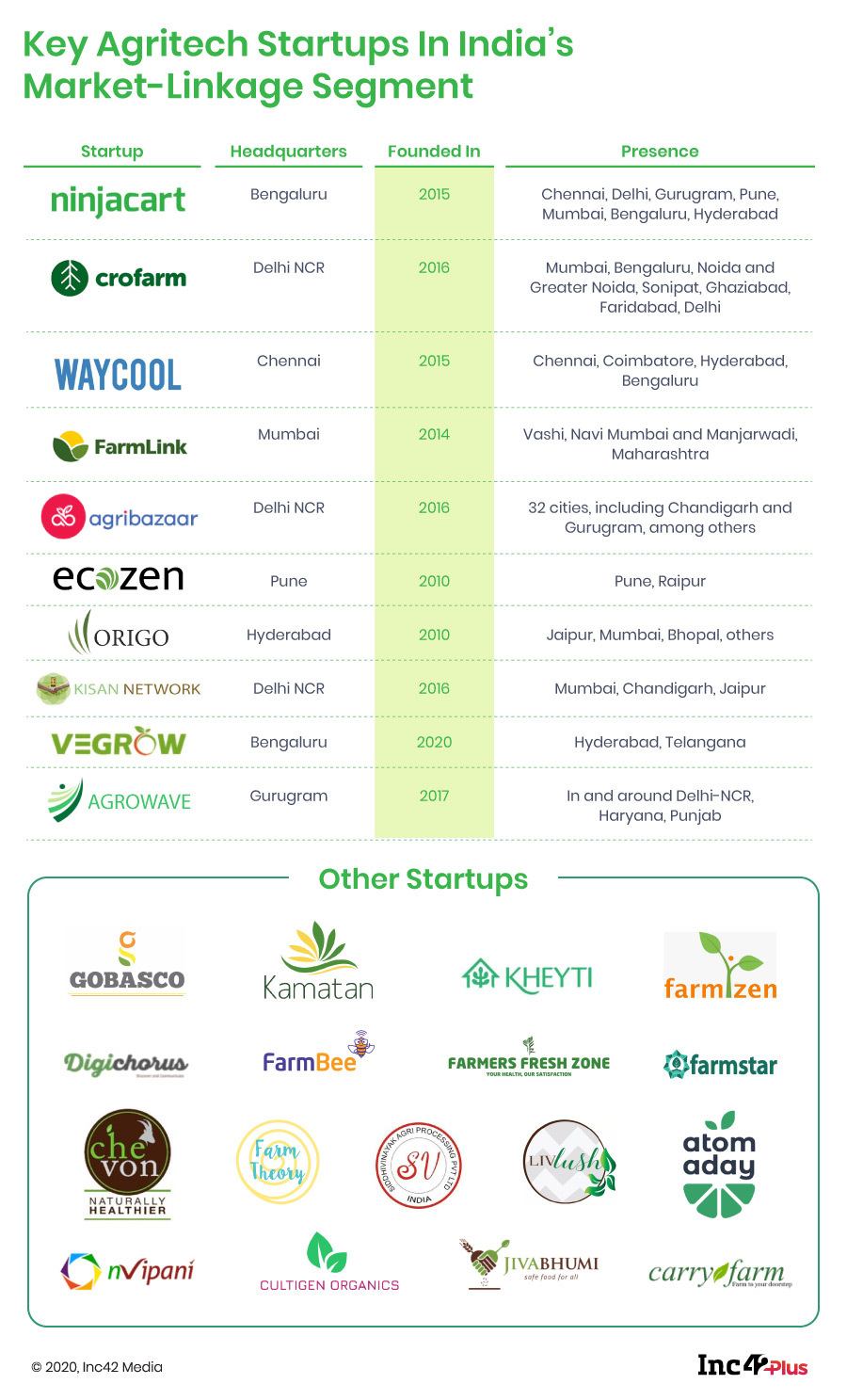
Similarly, Chennai-based agritech startup WayCool Foods and Products secured $5.5 Mn in debt financing in June 2020. Founded in July 2015, the company’s client base has grown to 11K and it boasts a base of 40K farmers in more than 50 regions for its direct supply chain model. The startup distributes farm-sourced fruits, vegetables and other produce to local shops and modern retail outlets through omnichannel distribution.
“In the past few years, industries have geared towards technology adoption for their supply chains to improve efficiency and accessibility. And in the past months, due to the Covid-19 pandemic and the subsequent uncertainties, technology has become a necessity. Players who use technology are in a better position to sustain the variability during these testing times,” says Bindu Reddy, principal at Rebright Partners, a Tokyo-based venture capital firm.
Rebright has invested in Bengaluru-based Aibono, an end-to-end aggregator platform that brings premium and perishable vegetables from kisans to kitchens with the help of AI-powered full-stack farm services and a demand-supply-syncing technology.
Besides providing easy access to key stakeholders, Indian startups are also bringing transparency in terms of pricing, demand forecasting, reducing cash handling and traceability.
“The more links there are, the more the inefficiency. There are many stops in-between, and every link adds some buffer and variability. It makes the system inefficient as no one knows how much inventory is lying where. Also, these startups promise farmers what they will get. The holy grail for the farmers in the country is to have the certainty that their produce will be picked up, the produce which is offered by market-linkage startups,” says Rohit Sood, principal, Bertelsmann India Investments (BII).
Market-Linkage Startup Success Attracts Agritech Investors
Although impact investors are paying close attention to all sub-sectors under agritech, the market linkage is one of the earliest segments to gain momentum. According to a ThinkAg report, market-linkage companies have raised more than 70 % of the agritech funding in the last five years.
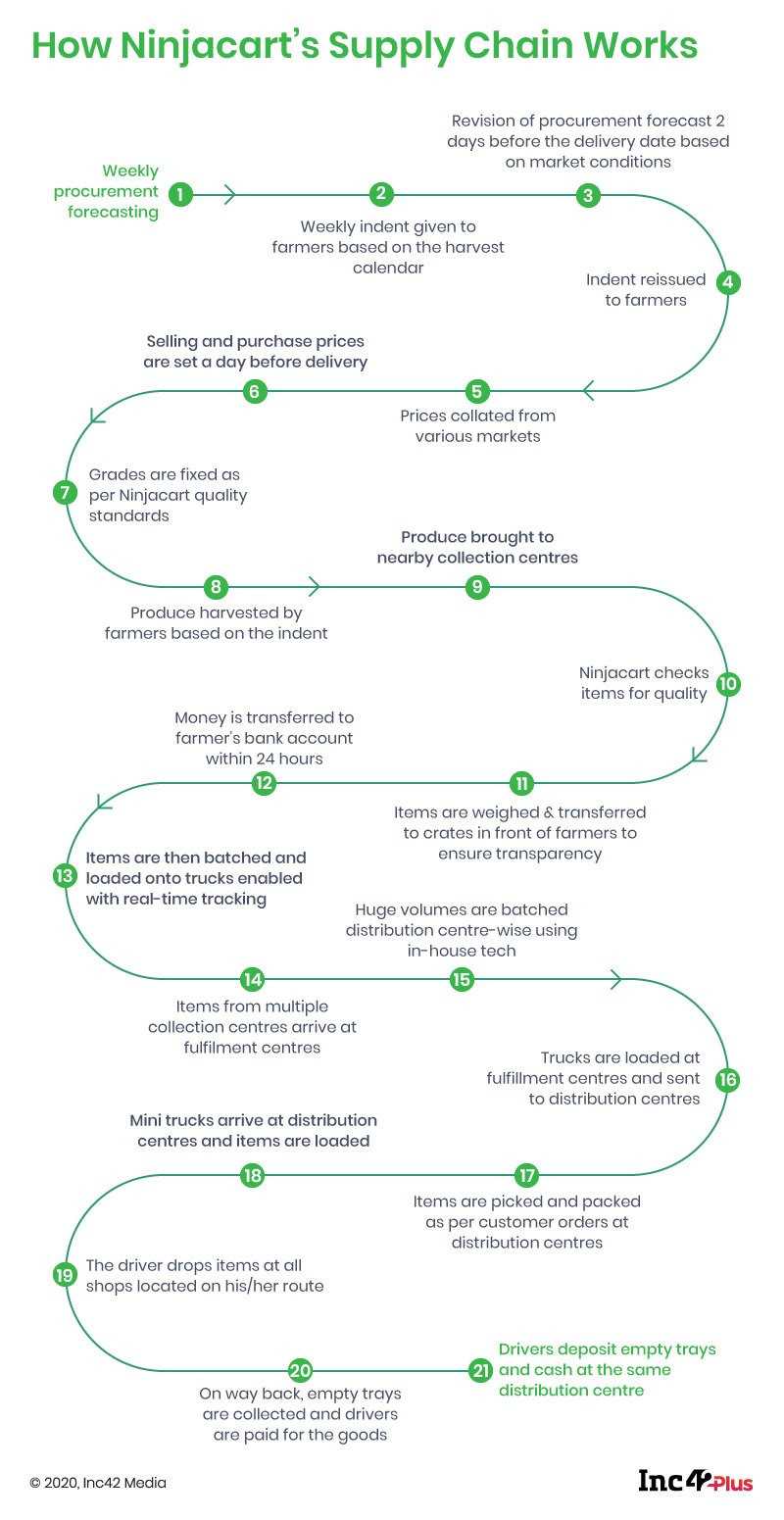
“The market for agritech startups is massive and growing. This has been a global trend with billions of dollars of funding flowing into the sector. Technology enablement will allow these fragmented supply chains to become more efficient and create better linkages for farmers to get the right price for their produce,” says Rema Subramanian, cofounder and managing partner at Ankur Capital. According to her, investors in India have upped their exposure to agritech and the sentiment towards market-linkage startups is very positive.
Her firm has recently added two supply-chain companies – Vegrow and Captain Fresh – to its portfolio. “Each focusses on a different segment, though. Vegrow specialises in fruits and vegetables and Captain Fresh deals in fresh fish and seafood. We are very bullish about both sectors. We expect to invest more in market linkage and associated financing solutions,” she says.
A new set of entrepreneurs from farmer families and the rising digital adoption by agricultural communities might have helped gain this traction. But the success of startups like Ninjacart has undoubtedly played a critical role in generating overall interest in the segment. “They were the early players who addressed market inefficiencies through B2B and B2C models and made the most impact with respect to farmers,” says Hemendra Mathur, venture partner at Bharat Innovation Fund.
“We are bullish about agritech and have previously invested in this space. In line with our fund’s thesis, that of digital transformation in India, we continue to evaluate startups which are vertically focussed and addressing supply-chain and market-linkage issues,” adds Reddy of Rebright.
Early Players Target Low Hanging Fruit
“We have seen increased activity in vertically focused full-stack solutions within market linkage where startups are investing in technology and infrastructure to bring in efficiencies. Currently, most startups are addressing the low-hanging fruit, but as the sector matures, deeper innovation will be necessary to sustain the competitive edge,” says Subramanian of Ankur Capital.
So far, the models have not been dramatically different. They are riding the tailwind of digitalisation, which is inevitable. “So, we see startups (small and large) turning their attention to leveraging digital technology to provide market linkages,” she says.
Some interesting business models have caught the attention of consumers and investors in recent years. These include Crofarm’s social commerce model and Gurugram-based AgroWave’s mobile pickup stations to reach farmers at farm gates instead of bringing them to mandis and other markets.
Crofarm has evolved from a B2B model to a B2B2C platform (Otipy) in February 2020 by leveraging social commerce. The company now connects end consumers to farmers through a community of resellers. Each reseller, the startup claims, earns up to INR 1 lakh per month for handling last-mile deliveries. The platform works closely with more than 1K resellers, mainly women, across the National Capital Region and serves more than 100K end consumers. It sources fresh fruits and vegetables from farmers across Haryana, Uttar Pradesh, Delhi-NCR, Gujarat, Himachal Pradesh, Karnataka, Rajasthan and Maharashtra.
“The idea behind this platform is to build a scalable, demand-driven and tech-enabled supply chain for fresh produce operating at 35 % gross margin. In this process, Otipy aims to help three key stakeholders – farmers, resellers and consumers,” says Varun Khurana, founder of Otipy.
As of now, most of these startups operate in some regions or pockets. For instance, Ninjacart is primarily based out of Bengaluru and sells produce from the interiors of Karnataka and Tamil Nadu. WayCool is also based in Tamil Nadu while Crofarm, located in Delhi-NCR, sources from Punjab. But there are some exceptions like DeHaat. The Patna and Gurugram-based player covers Bihar, Uttar Pradesh, Jharkhand and Orissa.
However, with the uptick seen in tech adoption, several startups can easily increase their market penetration. “Getting into new farm belts should become much easier now,” says Khurana of Otipy.
Traceability Solutions, Branded Plays And More
Given the current interest in the agritech space, supply-chain startups are expected to revamp their models further and come up with more innovative solutions.
Today, there is an increased opportunity for every player in the agri-value chain to become nimble, efficient and usher in changes for the benefit of the small farmers in India. “There will be an increased application of technology in the agri sector, even for small-holder farmers. The digitalisation of the entire agri-supply chain will gather pace as well as increased automation, adoption of blockchain technology, machine learning and artificial intelligence,” says Amith Agarwal, CEO and cofounder of AgriBazaar.
Investors closely watching this space also feel there could be branded play in the future wherein startups will get into niche segments such as cash crops.
“A branded consumer play can help startups monitor the crops along with procurement and doorstep delivery. As a brand, you can make the promise of quality,” says Sood of BII.
Some of these startups are also expected to add value by moving closer to farms. “There is a lot of emphasis on micro storage, cold chains and micro processing. Bringing these closer to farms is one of the ways market-linkage startups can bring in value addition. This is also going to improve their margins significantly. There is a huge opportunity for these startups to build a huge, robust primary storage and processing infrastructure near a farm,” adds Sood.
Contract farming, which is happening in select segments like organic farming where auditing is crucial, may also enter the market-linkage segment. “It may start with high-value crops, especially where buyers are looking for a certain variety. As different products like cash crops or spices have different supply chains, there cannot be any synergy among these. So, a niche supply chain is a distinct possibility,” says Ankur Bansal, cofounder and director of BlackSoil Capital.
Now that private mandis are allowed to operate, many think that warehouses can also double up as private marketplaces. “Any warehousing model is integral to market linkage. Since the new regulations allow private mandis, one can significantly save on logistics costs. Warehousing companies have already started leveraging this opportunity. For instance, Apna Godown in Rajasthan has taken a mandi licence and is trading from there. More startups such as Arya and Ergos may soon look into this space,” says Mathur of Bharat Innovation Fund.
Traceability solutions may see an uptick as well. “Many of these agritech startups are offering quite different services. DeHaat is serving food processors. Ninjacart is centred around kirana shops. Crofarm’s Otipy is focussed on social commerce. Now, we will see more traceability solutions. We will see embedding of digital quality metrics in some of these marketplaces,” says Kahn of Omnivore.
He also thinks startups like AquaConnect may soon transform the existing value chain and digitalise the same, and the sector is likely to see more of it. “The company works with different people in the supply chain, including commission agents, traders and buyers. It is working on making the system more efficient and digital, thus lowering the cost of capital,” he adds.
According to Subramanian of Ankur Capital, several startups in this sector use business models which are close variants but focus on different parts of the value chain. “For instance, some may focus on strong backward integration while others only deal in certain crops.” Blockchain could also play an essential role in enhancing supply chain transparency.
“However, innovations in this space are yet to come up, as are the financial products addressing the chain,” she adds.
Until now, most farmers were averse to sending their produce to distant markets due to their age-old dependence on local traders. But with the markets opening up, they are expected to explore other options and the demand for technology will accelerate to make the process seamless. “What can be measured can be improved. You can differentiate your business through consistent quality and stable pricing. Traceability becomes crucial in providing these experiences,” says Reddy of Rebright.
Moreover, with companies ensuring fair prices and establishing seller and buyer credibility across the supply chain, there should be more financial services, currently unexplored by agri lenders, she adds.
Devendra Gupta, cofounder of Ecozen Solutions, expects long-term changes in the supply chain, wherein farmers will target more distant markets in search of better prices. The Pune-based startup used to focus on the floriculture supply chain but pivoted to fruits and vegetables during the Covid lockdown. “We also foresee a reduction in consumer prices as the mandi cess and related taxes need not be paid now,” says Gupta.
Deeper Innovation Needed For Competitive Edge
As highly fragmented supply chains currently rule the agri market, startups are bound to find multiple opportunities in terms of traceability and transparency solutions, storage, logistics, value-added processing and fintech-led innovations.
“There is scope for innovation. That is what will set the bar for successful businesses. It is important to ensure a net increase in supply chain value due to startup interventions,” says Ankur Capital’s Subramanian.
She strongly believes it should not be a mere replacement of the existing system with another, which may move the inefficiency from one player to another. “The intervention here can create disproportionate returns and requires very little behaviour change. It will also open up opportunities in other areas such as the fintech layer required for supply chains.”
Most of the agritech startups have realised the need for innovation and are working towards it to leverage the newfound opportunities. A few, like Otipy, are focussing on reaching consumers faster. “While competition has increased, our USP is the freshness of the produce we can bring our customers. For us, it is a 12-hour window from farm to fork,” the company says. It is also exploring end-to-end agri solutions as well as market linkage.
Ecozen does it differently, though. “We are dealing in quickly perishable commodities and we use cold chain logistics instead of expensive air cargo. It reduces our logistics cost and also ensures maximum freshness of the produce. In this space, pre-cooling and pre-conditioning are essential. It requires expertise and the right mix of technology. That is where we have an advantage,” says Gupta.
But the big question remains. Could technology and innovation quickly overhaul an opaque and fragmented supply chain that has led to farmers’ exploitation and rotting of their produce for decades?
Post-Covid, there is a rude awakening about how valued agriculture is and what must be done to protect farmers from profit-grabbing intermediaries. Now several startups are slowly but surely making inroads into the supply chain landscape and there will be more in the making.









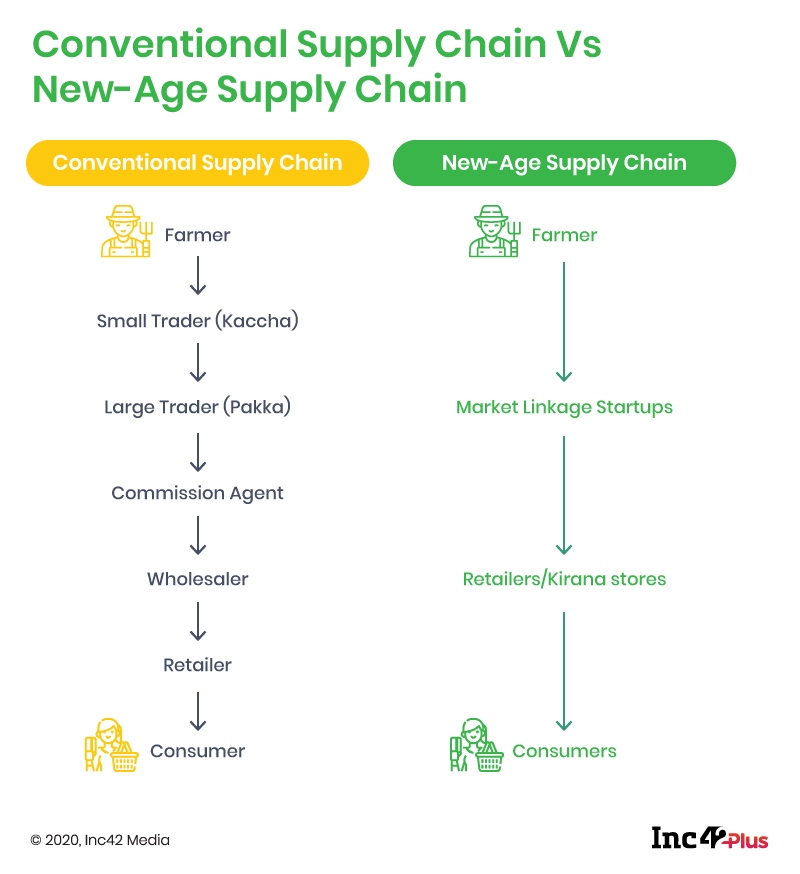

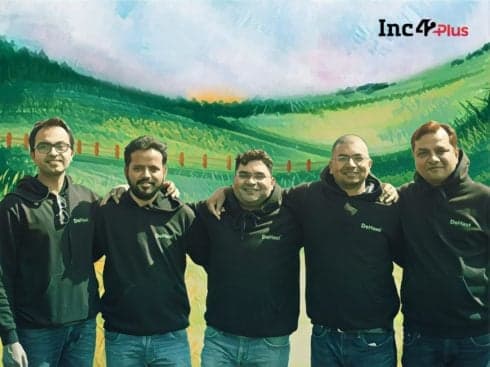
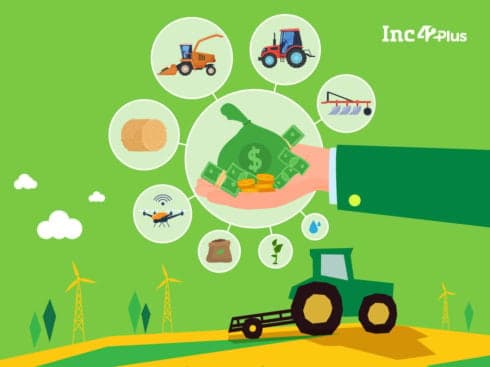
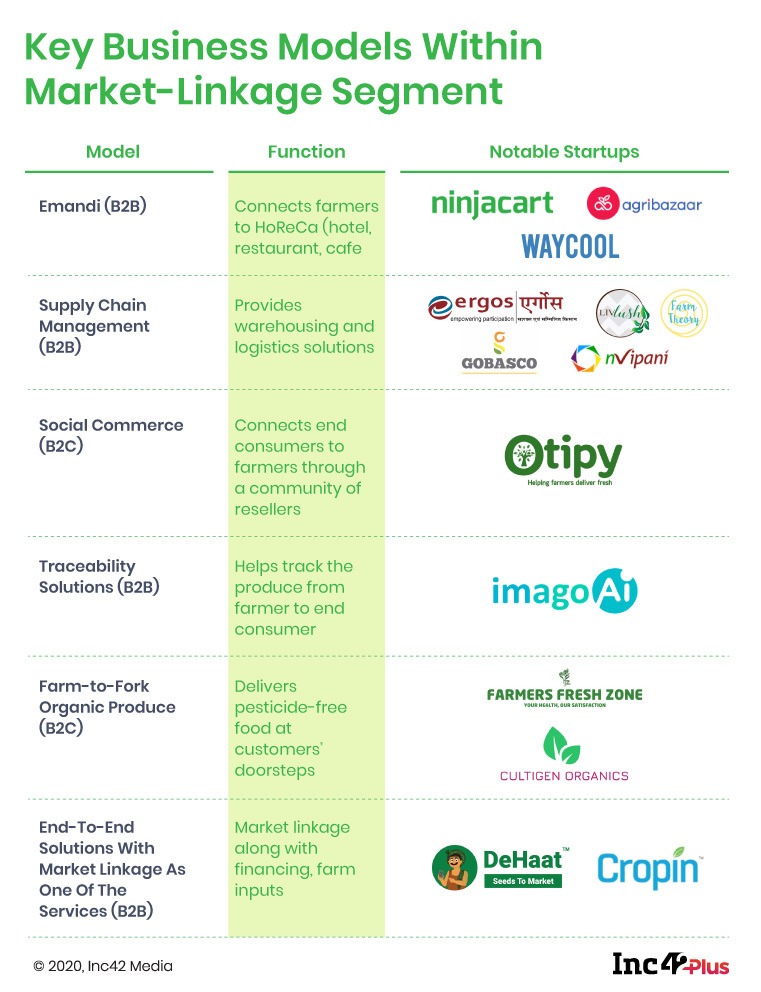




















 Ad-lite browsing experience
Ad-lite browsing experience